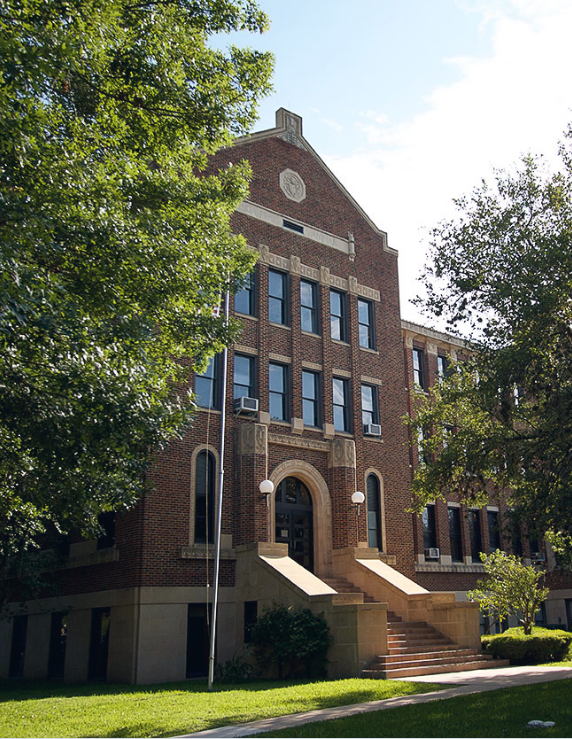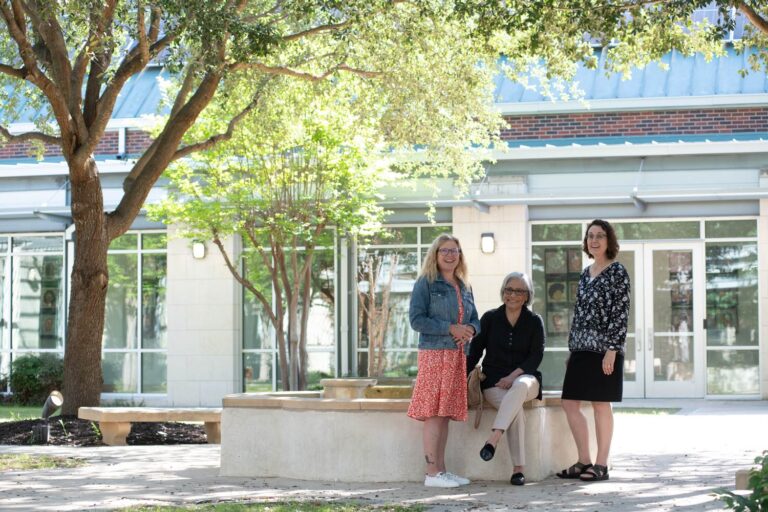My grandmother, Salome Chapa de Vela, was a woman of exceptional character. Born in 1877 on a rancho in the lower Rio Grande Valley she married and had ten children, one who died as an infant. The family left the Valley to seek a better life on the Texas coast in Port Lavaca, an ethnically and racially mixed town. My mother told me the story that one Sunday at Mass the priest under pressure from some of the Anglo members announced that in the future the Anglos would sit on one side of the church for Mass and the Mexicans on the other. My grandmother had suffered discrimination and prejudice in the Valley all her life. She was also a devout Catholic who had fed dinner to many priests at her home for years. She immediately confronted the pastor and said her family would not return to church until all were treated equally. He backed down.
The gospel today speaks of another forceful woman who suffered discrimination and who also got a man to change his mind. The Canaanite woman was a woman in a male dominated society, as well as a Gentile in Jewish territory, two strikes against her. She has a “troubled” daughter and asks Jesus to help cure her. The disciples want to get rid of her since they reflected the common prejudice against non-Jews and women. She knows Jesus can heal her daughter, as Matthew wants to emphasize that not one but two women are involved. She recognizes Jesus as the Davidic messiah, a title not given Him until his entry to Jerusalem, and a title rejected by Pharisees. The title, “Son of David,” would have recalled the Jewish tradition that kings were to act as God would act, caring especially for widows, orphans and foreigners as well as natural creation which belonged to God as its creator. Her declaration would have been amazing to a Jewish audience, Matthew’s target.
Jesus at first ignores her and then even insults her. He was showing himself to be a man of his time. Matthew is writing for a Jewish audience and would have set it up so they would have understood the putdown but then would have been more impressed with the faith. They would have remembered the great women of scripture, Deborah, Judith, Ester. The woman bests Jesus in the verbal spar and he welcomes her as a disciple.
The issue for the early Jewish Christians was can a pagan circumvent the law and go directly to Christ. The woman was simply asking that the blessings which were overflowing could go also to her. She is lauded for her faith. The phrase Jesus used to describe her, “great faith,” is only used in Matthew. She was undaunted and persistent even when initially rebuffed by a detached Jesus. She refuses to give up. Her desperation overcame her human pride. Her sense of humor helped as well, when she said even dogs, which Jesus had inferred she was, can get the scraps from the table. Often humor brings relief, joy and happiness and makes bitter medicine palatable. Self-deprecating humor can break through barriers between people and help bring them together. We have seen many instances of this type of humor in cartoons, Youtube and other places in the months of the pandemic. These have helped greatly to relieve some of our stress. Humor can build relationships and help form community. We all need to use more of it these days.
The woman took the initiative and was persistent, much like Mary, Jesus’ mother. At the wedding in Cana it also seemed she was rebuffed by Jesus when the hosts ran out of wine, but Jesus ultimately did what she wanted. Her last words in scripture are found in that story, “Do whatever he tells you.” Important words from Mary to all of us. Both women had a faith that was strong, not like Peter last week on the water when Jesus told him how little faith he had. Through her faith, the Gentile woman insists the barriers separating her from Israel are not impregnable. Prejudice and discrimination do not have the last word. Faith does. Another lesson for today!
This story was around the issue of table fellowship, under which for Jesus all are welcome. The woman insisted even the dogs are welcome around the table. The early Jewish Christians learned that they must invite and share Eucharistic table fellowship with those that were different from them. The table was where things happened.
There are several examples of other persistent women in the gospels, one looking for the lost coin, one demanding justice from a judge, a woman who touched the garment of Jesus when she was not supposed to because she was unclean. These showed women breaking rules because of something greater. They had to get what they needed and showed faith and persistence in doing so.
There is another story about my grandmother that speaks to the gospel today. I call her the first Hispanic feminist, maybe just the first feminist! At the age of 50 with nine children ages 5 to 25 she lost her husband to a heart attack, causing huge stress for the family just as the Great Depression was about to begin. She managed to send four of her daughters to the University of Texas in the 1930’s when it had almost no Hispanics. much less women. She made the sons stay home and work so she could support the women of the family in college. She told her daughters that if what happened to her becoming a widow with family at a young age ever happened to them, she wanted them to have a career to fall back on. Persistence and faith. An amazing legacy!
During this time of pandemic, we each need to reflect on the twin virtues of persistence and faith. We are in this for the long haul. Yes, we are so tired of the lockdowns, the masks, the social distancing, and all the protocols involved with staying healthy and also safeguarding others we come in contact with. Persistence means we will keep at it, doing what is necessary to keep ourselves and others in the community safe and healthy, even when it means personal self-sacrifice. We must dig deep looking for the faith that God gives us to be able to see the other at the same table we sit at and treat them as family. The virus has killed people of color disproportionately higher than others in our country. How can our faith call us to work so all have access to what they need to live healthy lives?
More than 80% of the health care professionals caring for Covid patients today are women. Women lead health departments across the nation. We here in San Antonio have a woman leading Metro Health now following the previous director who was also a women. The assistant to the Metro Health Director is a woman. They are all going to extraordinary lengths to care for people affected by the pandemic at great risk to themselves. The care a woman gives is different from that of a man, and it should be. Many a patient has experienced that healing care.
There are women of persistence and great faith throughout the scriptures and all around us today, and maybe even a few men too!
 Fr. David Garcia is a retired priest from the Archdiocese of San Antonio, Texas, where he served for 44 years. During that time, Fr. Garcia was instrumental in the effort to have the Old Spanish Missions recognized as a UNESCO World Heritage Site and also oversaw the multimillion-dollar restoration of San Fernando Cathedral. Fr. David served as pastor for several parishes in San Antonio, including the historic Mission Concepción. He also served as Senior Advisor for Clergy Outreach at Catholic Relief Services, the official international humanitarian and relief agency of the US Conference of Catholic Bishops.
Fr. David Garcia is a retired priest from the Archdiocese of San Antonio, Texas, where he served for 44 years. During that time, Fr. Garcia was instrumental in the effort to have the Old Spanish Missions recognized as a UNESCO World Heritage Site and also oversaw the multimillion-dollar restoration of San Fernando Cathedral. Fr. David served as pastor for several parishes in San Antonio, including the historic Mission Concepción. He also served as Senior Advisor for Clergy Outreach at Catholic Relief Services, the official international humanitarian and relief agency of the US Conference of Catholic Bishops.



